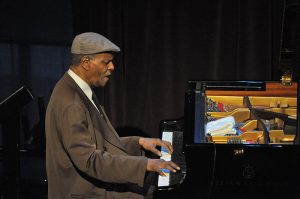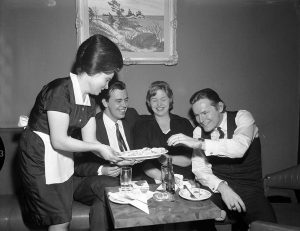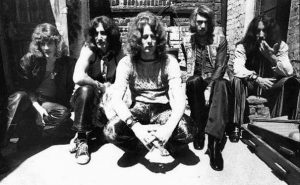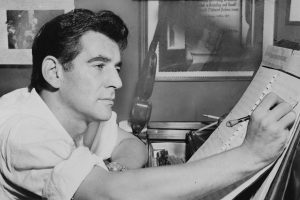http://www.youtube.com/watch?feature=player_detailpage&v=NnKTM0aLjZI
Classical Net has details on the guy with the greatest first name in music history. For an instant, I thought it was a nickname:
Along with Piotr Ilyitch Tchaikovsky, the greatest Russian composer of the Nineteenth Century, Modest Petrovich Mussorgsky (March 9, 1839 – March 16, 1881) was born into a wealthy rural, landowning family. He began by picking out on the piano the tunes he heard from the serfs on his family’s estate. At the age of six, he began to study piano with his mother. His parents initially set him out on the career of military officer. He became a cadet and finally commissioned in an elite imperial regiment. Two years later, in 1858, he resigned his commission. During this time, he met a musically-inclined army doctor: Alexander Borodin. The two became friends. In 1861, with Russia’s emancipation of the serfs, his family lost significant income, and he was forced to earn a living. In 1863, he began a spotty career in the civil service, which dismissed him at least twice. (Continue Reading…)
Below, The Berlin Philharmonic performs “The Great Gate of Kiev,” which is from “Pictures at an Exhibition.” Emerson, Lake and Palmer, of course, offered a version of the piece with an emphasis on volume. Modest probably would have liked that about as much as the Gershwins would like Janis Joplin’s version of “Summertime.” Above is “Night on Bald Mountain,” which is performed by the Ural Philharmonic.
Classical FM offers some handy bullet points:
- Mussorgsky was one of music’s great originals. Everything he composed was conceived in terms of natural rhythms, melodies and harmonies of Slavonic folk music. He constantly railed against tradition, honing his music in order to make it, in his words, “an artistic reproduction of human speech in all its finest shades”.
- Mussorgsky’s natural talent was obvious from the start. Initially taught by his mother he became a pianist prodigy, making his debut at nine years old. Four years later, in 1852, he enrolled at the Imperial Guard’s cadet school and composed the Porte-en-seigne polka, a surprisingly cheery piano miniature.
- In 1863, a shortage of funds forced Mussorgsky to take a job as a clerk in the civil service. Though brimful of startlingly original ideas, the pieces he composed in his spare time often lacked any musical logic and he abandoned many works out of sheer frustration. Indeed, if it hadn’t been for Rimsky-Korsakov’s later kindness and support, Mussorgsky, and his music, might have fallen by the wayside.
- Throughout the 1870s, Mussorgsky became increasingly prone to epileptic seizures, and his predilection for alcohol quickly developed into full-blown dependency.
- Mussorgsky’s most famous work is Pictures at an Exhibition. It departs from convention at almost every turn. By way of a series of interludes, the composer himself regularly appears in the form of a recurring ‘Promenade’ theme. As he strolls around the gallery, stopping at each new stage design or watercolour by his friend Viktor Hartmann, the ‘Promenade’ transforms; sometimes settling us down for the next picture, occasionally creating a startling change of atmosphere. (Continue Reading…)










Add Comment